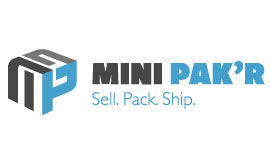Kimberly-Clark Turns Gloves into Furniture with RightCycle
When it comes to recycling, people focus on the big four materials: metals, glass, paper, and plastics. However, those aren’t the only materials that need a second, third, or fourth life. Heck, even some objects within those categories aren’t able to be properly recycled. Kimberly-Clark Professional is taking on these niches, honing in on recycling its own products after they’re finished being used by their customers with its RightCycle program. And so far, it’s been a big success.
As a company that prides itself on safeguarding the health of its customers, Kimberly-Clark is the behemoth behind paper towel dispensers, sanitary gloves, bathroom and facial tissue, disinfectants, and safety gear (like vests and even welding masks). In case you don’t know them by name, perhaps you recognize their brands like Kleenex, Scott, KleenGuard, or even Smith & Wesson (well… at least their protective eyewear rather than firearms). Just as it looks to protect humankind from germs and medical conditions outright, Kimberly-Clark is now turning its sights on greener programs to help protect us from ourselves. Or, at the very least, our garbage problem.
Enter RightCycle, a recycling program focused on turning old lab gloves and garments into new things like plastic shelving, flower pots, and lawn furniture. Having started in 2011 with only a few participants, that number has swelled to over 200 as of July 2016. Of all its recycling partners, University of Illinois Urbana-Champaign’s Illinois Sustainable Technology Center (or ISTC) and Purdue University have been two of the most promising. Having successfully diverted almost six tons of non-hazardous plastic lab and industrial waste from landfills, both campuses have been a part of their own studies on how efficiently RightCycle works.
“We pioneered this program because we recognized that the sustainability goals of our university and pharmaceutical customers included reducing landfill waste, and single-use gloves accounted a large percentage of that waste,” said Randy Kates, Director of Kimberly-Clark Professional Global Scientific Business to Waste360. “We needed to find a recycling solution that helped them achieve their goals and enabled their people to be positively engaged in the process.”
By piggy-backing off of their partners’ interest in becoming greener and reducing waste, RightCycle steps to handle non-hazardous garbage left over from those long days of sciencing. By taking single-use gloves, masks, shoe covers, garments, and other apparel and turning them into plastic pellets, these pellets are then melted back down and turned into consumer products and durable goods. These can range from lawn furniture, plant and flower containers, planters, shelving and storage systems, and carrying bags.
Kimberly-Clark’s program mission statement further explains the company’s interest in helping their customers become greener:
“At Kimberly-Clark Professional, our commitment to helping our company and our customers be more sustainable starts with the products we make. That’s why we continually work to reduce the environmental impacts of our products at all stages of their lifecycle — from raw materials through ultimate disposal. This is also why we developed RightCycle by Kimberly-Clark Professional. This innovative program enables our customers to collect previously hard-to-recycle items, such as KCP nitrile gloves and single-use apparel, and have them turned into eco-responsible consumer goods.”
“Identifying opportunities to reduce impact at every stage of a product’s lifecycle reduces our dependency on the world’s natural resource leaving more for the future — for our children, for the planet, for our businesses. This is a big responsibility to carry; especially with the multitude of other tasks that require attention in today’s business environment. We want to help our customers bear that responsibility and reach their zero waste to landfill goals. The RightCycle Program is just one way in which we can work together to do just that, one ton of waste at a time.”
Smart Solutions for Smart People
ISTC and Purdue have both participated in the RightCycle program since 2013 and 2014 respectively, providing thorough case studies of the initiative’s impact (you can read about ISTC’s here and Purdue’s here).
One of ISTC’s missions is to “drive statewide economic growth through sustainability.” Given RightCycle’s very nature, participating and studying the program has helped ISTC make that mission reality. “We conducted a waste audit to see how we could go to zero waste in our own building and realized that gloves were about 10 percent of our total waste by weight,” said Shantanu Pai, an assistant sustainability researcher at ISTC. “We were already effectively recycling other items like glass, aluminum, paper, and cardboard.” Those elusive nitrile gloves, however, didn’t have their own special recycling plan until RightCycle was implemented in 2013.
Since then, ISTC has managed to achieve roughly 89 percent compliance for gloves used in its labs; pushing this momentum, they implemented the RightCycle program with the University’s main dining hall and diverted about 90 percent again. Needless to say, they’re pursuing using this program campuswide, even purchasing a specialized storage container to keep all the gloves and related waste for annual shipments to Kimberly-Clark. In total, this comes out just under 5,000 pounds. This translates to about 320,500 gloves or, in other words, two and a half tons of them from landing in the local dump.
Purdue has seen similar success after diverting about 360,000 of its own gloves to the RightCycle program annually. Over the past two years, Purdue’s chemistry department has diverted about 6,900 pounds of lab gloves from landfills. Michael Gulich, Director of Campus Master Planning and Sustainability, has echoed ISTC’s interest in taking this program across campus: “Once you address cans, bottles, paper, and cardboard recycling, you get into smaller niche streams. We have some addressed very well, such as electronics waste and landscape debris. Previously, gloves didn’t have a solution. Anything that increases our diversion rate is good.”
If you or someone you know would be interested in participating in the RightCycle program, you can find eligibility and sign-up information on Kimberly-Clark’s website. Of course, if you own a business that distributes products that can be recycled, how can you capitalize on a new income stream by taking care of your customer’s waste?
As Kimberly-Clark Professional is showing along with the satisfaction of its customer-participants, it’s certainly paying off to be green — in more ways than one.

